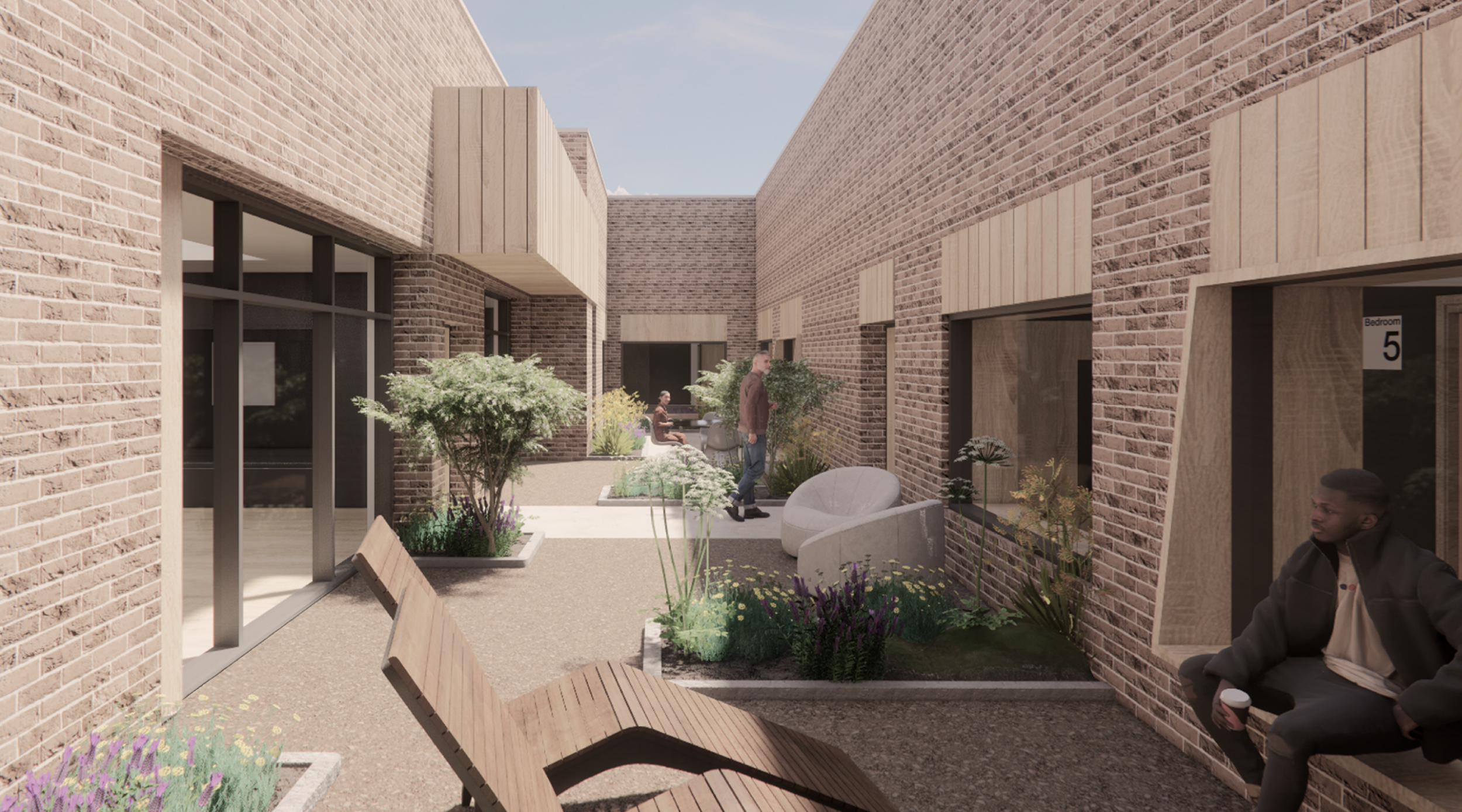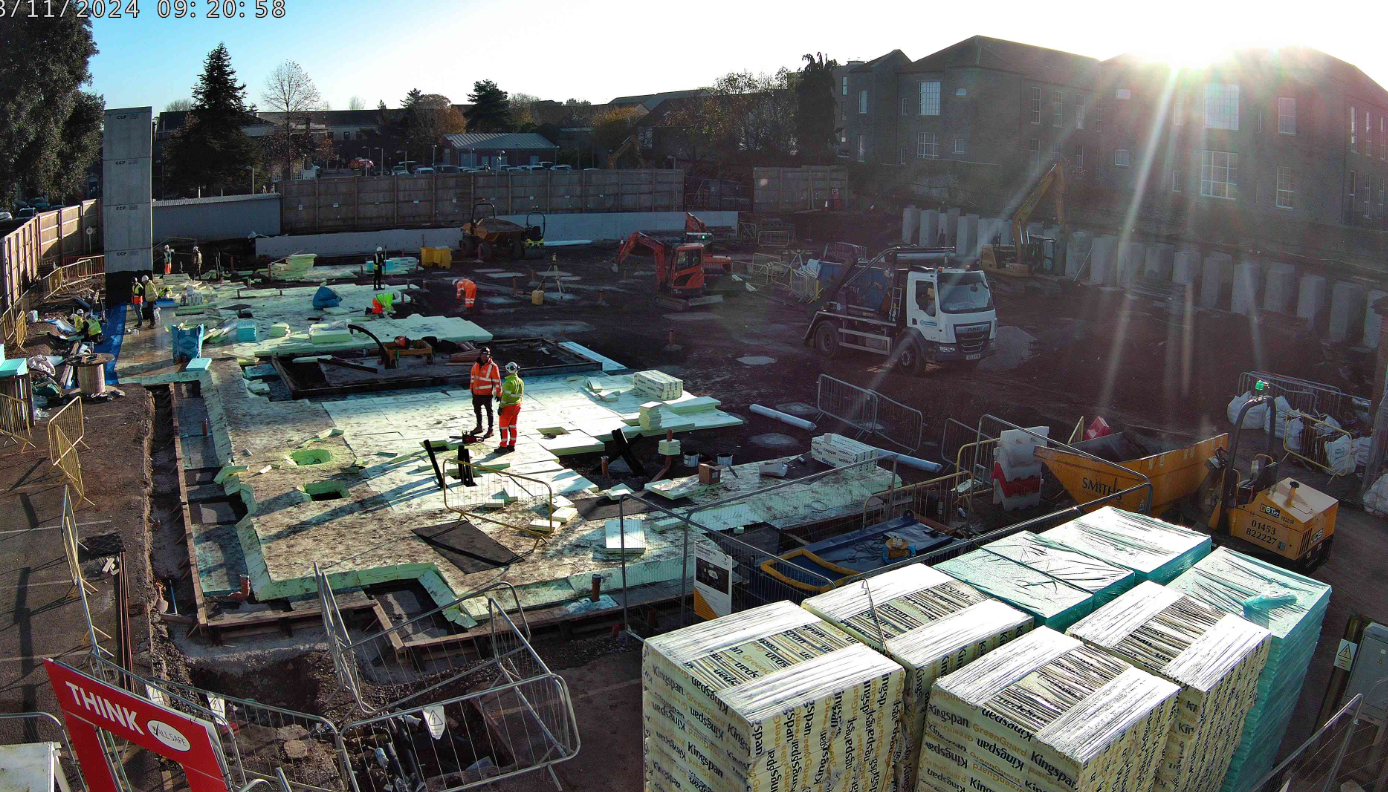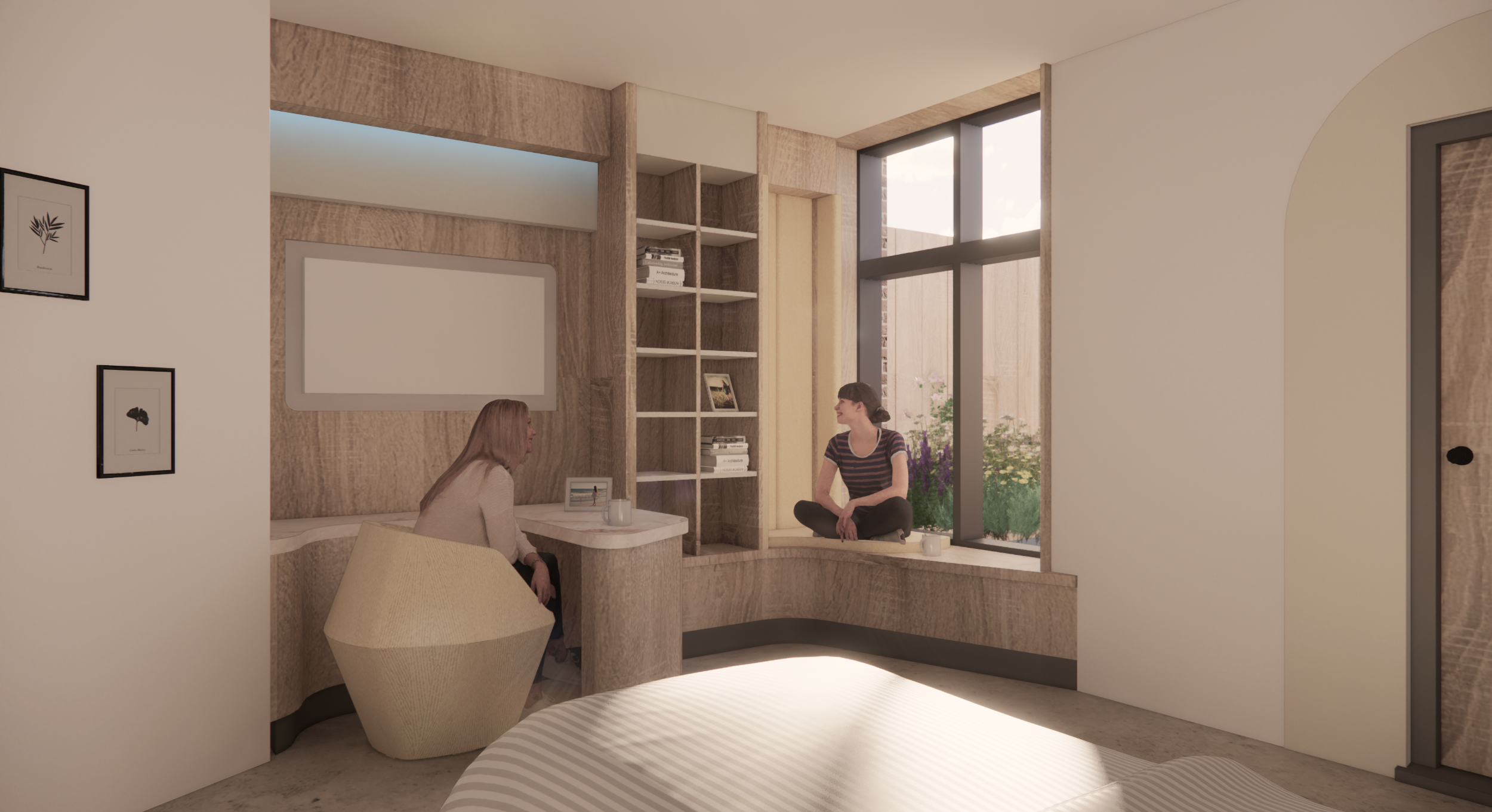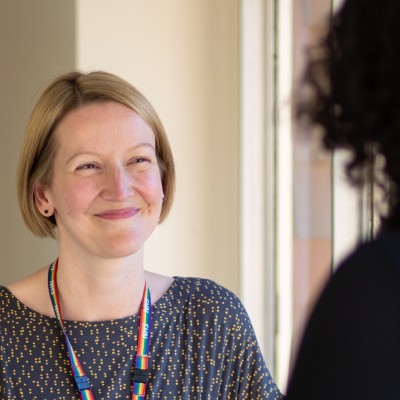A new £20million 10-bed facility is currently being built on the Blackberry Hill site in Bristol and run by Avon and Wiltshire Mental Health Partnership NHS Trust (AWP).
The Kingfisher, named following a public vote in Autumn 2024, is being designed specifically to care for individuals across the south west with a learning disability or autistic people, who would benefit from specialist mental health treatment in a hospital, when needs cannot be met in a mainstream mental health hospital or at home.
The Kingfisher will help bring an end to long-distance placements for this cohort of patients, making life better both for individuals who need hospital treatment, and for their families, friends, and carers. This will go hand in hand with improvements to local care and support of individuals with a learning disability and autistic people so they can live healthier, happier lives in their local communities.
Construction work on the site began in May 2024, with the facility expected to receive its first patient in early 2026.
The Kingfisher is now recruiting.
Interested in being part of the dynamic, versatile team at The Kingfisher, our new specialist inpatient and outreach service for people with learning disabilities and autistic people across the South West?
The Kingfisher is a new way of providing specialist inpatient care, visit the AWP careers page to find out more.
Whether you are an experienced specialist or just starting your career in health or mental health, we have a role for you, email: awp
The project has enlisted the support of people with lived experience and their carers to influence and shape its design. Over the past 18 months groups representing those with learning disability and autistic people have been meeting with architects to offer lived experience on things like ward layout, furniture designs, garden landscaping and sensory considerations such as acoustic and lighting.
Ben Stunell, peer mentor who has supported the project, said: “It has been very rewarding and confidence building to have our thoughts and ideas listened to and it will be very exciting to see the building going up and taking shape knowing that we've contributed so much, alongside other support groups and people with lived experience. We are committed to keeping the autistic voice at the forefront of any ward/clinical design so that the environment is adapted to our needs.
It's excellent news that the project has now been approved and I really hope that in future many people and families will benefit from what this new building can offer, and will help to ensure that people get the best care possible to meet their needs and support recovery.”
The NHS Long Term Plan continues the commitment set out in Transforming Care for moving away from an overreliance on inpatient care (and other restrictive approaches), towards responsive, timely and appropriate interventions that support individuals to live healthier, happier lives in their local communities – when it is clinically safe to do so.
The focus on effective community services continues to lead to a reduction in the use of inpatient beds for individuals with a learning disability and autistic people. However, they should be able to access inpatient services as and when they need to. These new services will be high-quality, integrated with community services, and focused on proactively encouraging independence, recovery, and swift discharge back to the community.
Community Care and Treatment Reviews continue to prevent unnecessary hospital admissions, making sure that where individuals are admitted if they need hospital care, that they receive it in the best place for their needs. Regular Care and Treatment Reviews for those in hospital also helps prevent unnecessarily long stays – moving people back to their local community with the right care and support in place as soon as is safe and appropriate to do so.
In accordance with the provisions of the Equality Act 2010, people with a learning disability and autistic people who need to be admitted to hospital, should be assessed, and treated in mainstream inpatient services wherever this is reasonably practicable.
Bath and North East Somerset, Swindon and Wiltshire Integrated Care Board are lead commissioners for The Kingfisher on behalf of Bristol, North Somerset and South Gloucester Integrated Care Board who are commissioning one bed and Gloucester Integrated Care Board who will purchase beds as needed. The Kingfisher is part of a South West offer with Devon Integrated Care Board Commissioning a similar facility in Dawlish on behalf of Somerset Integrated Care Board, Dorset Integrated Care Board and Cornwall Integrated Care Boards who will also purchase beds as needed.
Laura Ambler, Executive Lead for Learning Disabilities and Autism, Bath and North East Somerset, Swindon and Wiltshire Integrated Care Board, said: “This new facility has been designed with input from service users, people with a lived experience, and their families and carers and will provide the kind of specialist therapeutic mental health care which cannot be provided at home or in another mainstream hospital. The news of this new local facility, alongside the developments and transformation we’re planning within our community services, is really positive and will significantly improve the services available for people with a learning disability and autistic people across the south west.”
Deborah El-Sayed, Chief Transformation and Digital Information Officer at NHS Bristol, North Somerset and South Gloucestershire ICB, said: “This new facility is a significant and positive development for the region that will make a substantial difference to the lives of service users and their families, who often have to travel far away from home for access to specialist care. We look forward to the facility being in place and will keep local people updated as works progress.”
Alongside The Kingfisher, a further 10-bedded facility called The Brook will also be opened in Devon. It is the first-time systems across the region have worked together to deliver these services and while it will result in an increase in beds in the South West, it will not result in more people being admitted to hospital. Instead, only those who genuinely need to be in hospital can be, and closer to home. Only a very small number of people will require these services.
Jill Crook, Director of Nursing at NHS England South West, said: “This is fantastic news for the South West and represents years in the making of hard work to drastically transform the health services available for individuals with a learning disability and autistic people.
This is part of a wider programme of work, including continued improvement to community services and the new beds will not result in more people being admitted to hospital, instead only those whose needs cannot be met in hospital can be, and closer to home.
We are working hard across our systems, and importantly with people with lived experience to get this right.”












